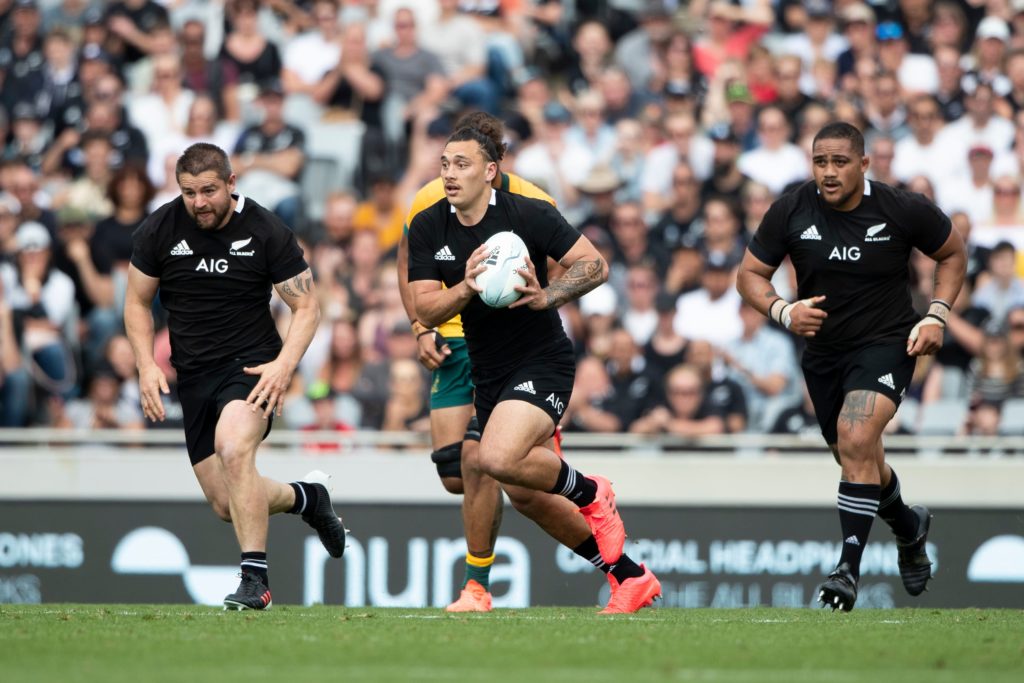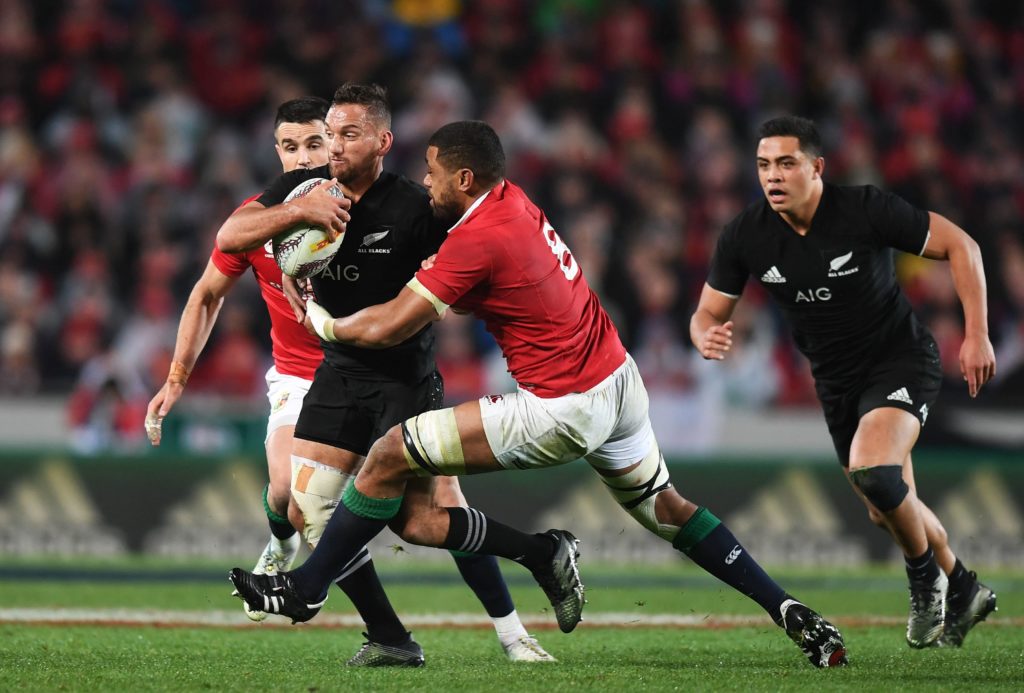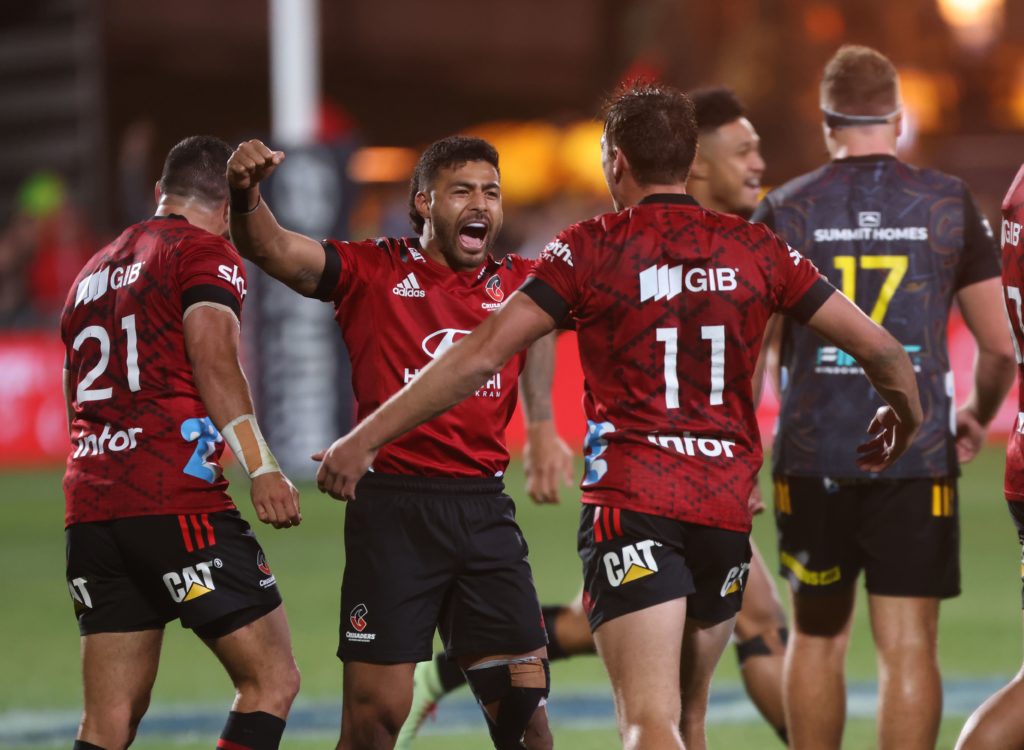New Zealand’s approach to players who commit their future elsewhere has never been consistent but it has always been pragmatic.
In a rugby system that is guided by a 100-plus-page collective agreement and governed by a national union that has rightfully been fiercely protective of its domestic game and black jersey, it seems almost an oversight that there is not a uniform approach in how to treat those players who announce, mid-season, they will be heading offshore at the end of their respective contracts.
This issue has kicked into life as a result of the Hurricanes leaving Ngani Laumape out of their match day 23 to play the Waratahs in Sydney in the first round of the Trans-Tasman Super Rugby competition.
The question had to be asked as to whether it was a quirk of timing or something more fundamental at work when the in-form midfielder was left out of the squad, the day after he announced he would be leaving for Stade Francais at the end of this campaign.
The Hurricanes were at pains to say it was coincidental – that the plan had always been to change things in the Trans-Tasman leg of the season after the intensity of Super Rugby Aotearoa. Laumape had carried a heavy workload and so it made sense that he would be one of the players rested for the trip to Sydney -especially as the promising Peter Umaga-Jensen and Billy Proctor had been sparingly used so far.

“That’s been part of our plan since the back-end of the earlier comp, we were looking forward to the Trans-Tasman thinking if we’re going to win it, we’re not going to be able to go through that with the same 23 every week,” head coach Jason Holland said of Laumape’s exclusion.
“The mindset to make sure everyone is fresh and ready to go at the end of the season, we’re not going to have the same 23 from week to week. There’s going to be three or four guys who will be in and out of the side for the first three or four weeks.”
Laumape has been a sensationally good performer for the Hurricanes since 2016 when he came across from the NRL. The Hurricanes aren’t going to suddenly sideline him or not use him again before he heads to France, but they do now know that they have to start building a new midfield combination as Laumape won’t be with them in 2022.
So their approach between now and the end of the Super Rugby TT will be to balance their longer-term goal of starting to develop combinations that they can use next year, with their desire to win the competition.
The instant [Lima Sopoaga] made his career plan public, he effectively ended his All Blacks career on the spot, despite the fact he would be available and eligible for the three-test June series against France.
Inevitably that will see Laumape go from a must pick to an occasional pick – a fate that has befallen many others who have committed their futures to offshore clubs. It can look like punishment, a petty response by the club who felt they made a strong offer to keep him, but it’s simply the reality of where the Hurricanes now find themselves.
In fact, many other players have suffered much more harshly. In January 2018, Lima Sopoaga announced he would be joining Wasps in August that year.
The instant he made his career plan public, he effectively ended his All Blacks career on the spot, despite the fact he would be available and eligible for the three-test June series against France.
There were mid-season training camps that year – to which he was not invited, despite having been the preferred bench option at No 10 for the national team since mid-way through 2017.
It was a fair and rational decision by the All Blacks selectors to immediately discount him from their plans, but so too was it in stark contrast to how they had handled Aaron Cruden’s departure the year before.
Cruden had announced in early 2017 that he would be joining Montpellier after the Lions series in June and July. The All Blacks, desperate to beat the Lions, picked Cruden, awarding him his 50th cap in the third test.
It was a needs must situation – a pragmatic call that the All Blacks needed the experience and class of the departing first-five. And that’s how it goes in this area.

Charlie Faumuina was also heading to France after the Lions series and he too played in the third test. Just as Sonny Bill Williams was able to play the first two Bledisloe tests of 2012, despite the fact he was heading to Japan barely a week later, before taking up an NRL contract in 2013.
But at the time, Conrad Smith was unavailable due to a detached retina and so the All Blacks had a need that Williams could fulfil. If it suits the All Blacks or a Super Rugby team to keep picking a departing player, they will if. And if they have a viable alternative, someone that they feel is a long-term development prospect, the departing player may suddenly be on the bench or out of the squad.
Players may not like it or argue it’s unfair to have such an inconsistent approach, but Super Rugby and All Blacks coaches are entirely within their rights to do what works best for the team as opposed to the individual.
I’m not too sure exactly what the process is and I’m not too sure if they have tests for July, but I’ll be available. Hopefully I get an opportunity to put my best foot forward, and if not, I guess I’ll be maybe playing for the Magpies.
Brodie Retallick on his return to New Zealand
Where this might get trickier, however, is when the All Blacks have to find a means to re-integrate the likes of Brodie Retallick, Beauden Barrett and TJ Perenara after they return from their respective sabbaticals in Japan.
All three have been decreed eligible to play for the All Blacks in July despite not playing in the preceding domestic professional competition.
As Retallick said last week: “When I arrive back in New Zealand and pass a medical, I’ll be under contract with New Zealand Rugby again.
“I’m not too sure exactly what the process is and I’m not too sure if they have tests for July, but I’ll be available.
“Hopefully I get an opportunity to put my best foot forward, and if not, I guess I’ll be maybe playing for the [Hawke’s Bay] Magpies to prove my case and try to get my way back in there.”
It would be non-sensical and counter-productive for NZR to allow these players short-term getaways and then unduly punish them on their return by saying they had to first play in either Super Rugby TT or the provincial championship before they could be picked again for the All Blacks.

Allowing them to be immediately available makes sense but the issue is going to be how to phase them into action. While they have been playing in the more aerobic and less physically demanding Japanese Top League, their peers have been smashed up in Super Rugby Aotearoa.
How could it be fair on Richie Mo’unga, for example, to finish Super Rugby Aotearoa as the undoubted player of the tournament and then find himself starting against Fiji this July on the bench behind Barrett?
But ditto, Barrett is a world class All Black with a proven test history and is fit, in form and raring to go. What’s the right way to re-introduce him and Retallick to test football without those who stayed in New Zealand feeling undervalued?
All Blacks coach Ian Foster will be faced with a series of difficult decisions as he tries to balance what is right for the team and fair to all the individuals affected.
And maybe here, it would be best if there was a defined integration policy set by New Zealand Rugby. After all, the national body used to previously determine strict protocols for All Blacks in regard to how much Super Rugby they could play and how they were to be phased into action at the start of each season.
A similar set of expectations for Barrett, Retallick and Perenara would take some pressure off Foster. If there was a policy in place that said the returnees had to return to test football via the bench and do so in at least two tests before they were eligible to start, it would provide an equitable pathway for all.



Comments
Join free and tell us what you really think!
Sign up for free